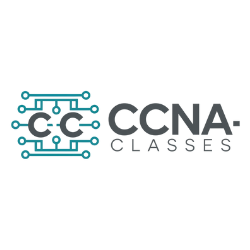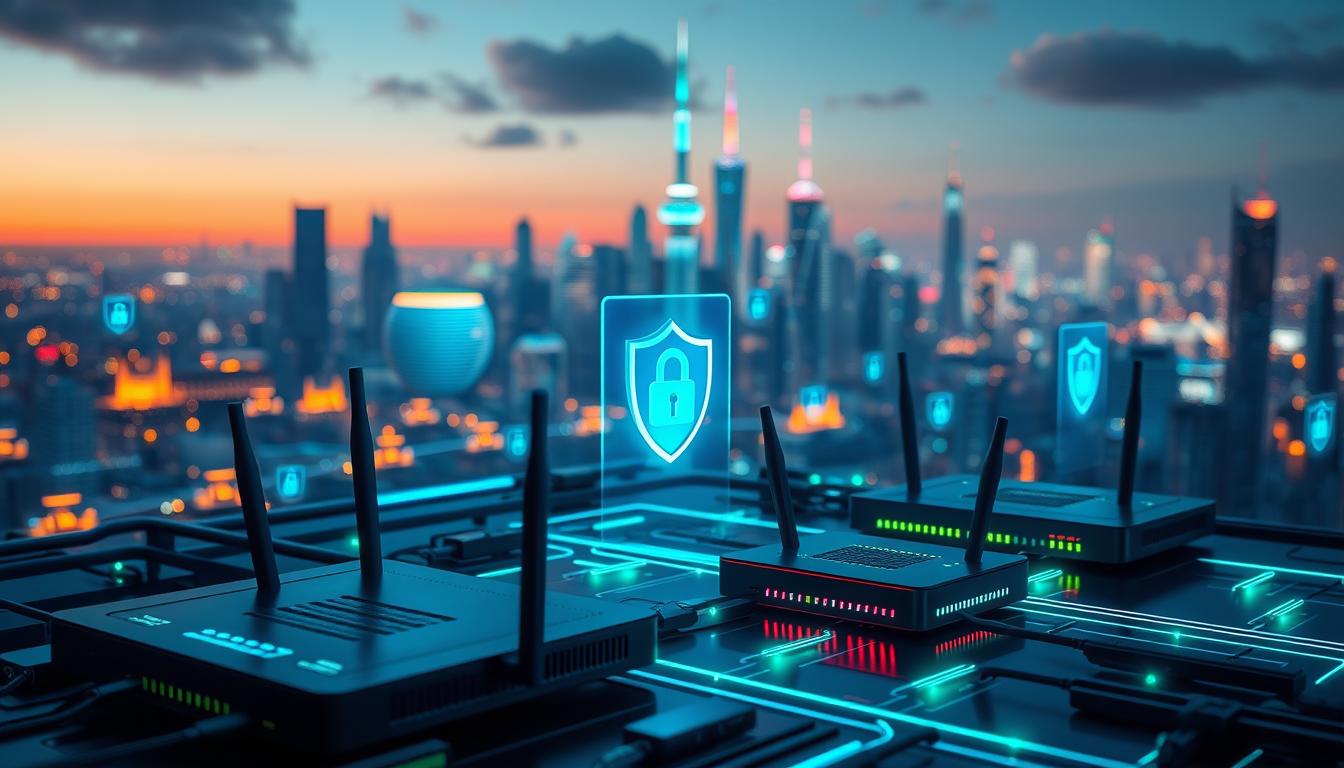Are you preparing for the CCNA exam? Looking for effective study tools to help you ace the test? Well, look no further! In this article, I’ll be sharing with you a powerful tool that can supercharge your CCNA exam preparation: flashcards. As an experienced CCNA certified professional, I can attest to the effectiveness of flashcards in retaining and recalling crucial information. So, if you’re ready to take your CCNA exam preparation to the next level, let’s dive in and explore how flashcards can be your secret weapon to success.
When it comes to studying for the CCNA exam, it’s all about mastering the key concepts and terminologies. And that’s where flashcards come in handy. These bite-sized study aids allow you to review and reinforce your knowledge in a quick and efficient manner. With flashcards, you can easily quiz yourself on important topics like subnetting, routing protocols, and network troubleshooting. By repeatedly going through the flashcards, you’ll strengthen your understanding and improve your retention of the material. So, if you’re serious about passing the CCNA exam with flying colors, it’s time to incorporate flashcards into your study routine.
Benefits of Using Flashcards in CCNA Exam Preparation
When it comes to preparing for the CCNA exam, one of the most effective study tools I have found is flashcards. These small, portable cards have numerous benefits that can help you retain and recall crucial information. Let me highlight a few of the key advantages of incorporating flashcards into your study routine:
- Efficient Review: Flashcards allow for quick and efficient review of key concepts and terminologies. Instead of flipping through pages of a textbook or scrolling through lengthy notes, you can simply go through your flashcards and focus on the specific information you need to reinforce.
- Active Learning: By using flashcards, you actively engage with the material. The act of writing down important concepts on the flashcards and then quizzing yourself forces you to actively recall information, which has been proven to enhance learning and retention.
- Portable and Convenient: Flashcards are lightweight, compact, and easy to carry around. You can take them with you wherever you go, whether it’s your daily commute, breaks at work, or even while waiting in line. This flexibility allows you to make the most of your time and fit in some productive study sessions whenever you have a few spare minutes.
- Customizable and Personalized: Flashcards give you the freedom to create your own study materials based on your specific needs. You can include the most important information, essential formulas, or tricky concepts that you find challenging. This customization allows you to focus on the areas where you need the most practice and reinforcement.
- Repeated Exposure: The repetition involved in using flashcards can greatly improve your understanding and retention of the material. By going through the same flashcards multiple times, you reinforce the information and build a strong foundation of knowledge. This repeated exposure helps you remember key details and recall them accurately during the CCNA exam.
How to Create Effective Flashcards for CCNA Exam
When it comes to exam preparation, flashcards are a powerful tool that can help you memorize key concepts and terminologies efficiently. However, creating effective flashcards is crucial to maximize their effectiveness. Here are a few tips on how to create flashcards that will greatly enhance your CCNA exam preparation:
- Stay focused on the essentials: One of the biggest advantages of flashcards is their ability to condense complex information into bite-sized chunks. When creating your flashcards, focus on the most important concepts, keywords, and commands that you need to remember for the CCNA exam. Avoid overloading your flashcards with unnecessary details that may only confuse you during study sessions.
- Use concise and clear language: Flashcards should contain brief and to-the-point information. Use short sentences or bullet points to convey the key points effectively. Remember, the goal is to quickly review and absorb the information, so avoid lengthy explanations or excessive details.
- Include visuals when possible: Visual cues can greatly enhance memory retention. If applicable, include diagrams, charts, or network topologies in your flashcards to reinforce your understanding of the topic. Visual representation can often help you recall complex concepts more easily during the exam.
- Organize your flashcards: Keep your flashcards well-organized to make your study sessions more efficient. You can categorize them by topics or modules in the CCNA syllabus. By organizing your flashcards, you can easily review specific areas of focus and ensure that you don’t miss any vital information.
- Review and revise regularly: Consistency is key when using flashcards for exam preparation. Make it a habit to review and revise your flashcards regularly. The more you expose yourself to the information, the better your retention will be. Set aside dedicated study time each day to go through your flashcards and reinforce your knowledge.
Remember, creating effective flashcards is an important part of your CCNA exam preparation. By following these tips, you can create flashcards that are tailored to your needs and optimize your study sessions. So, grab a pen and some index cards, and get started on creating your own set of powerful CCNA exam flashcards.
Tips for Utilizing Flashcards in Your Study Routine
When it comes to preparing for the CCNA exam, incorporating flashcards into your study routine can be a game-changer. Flashcards are a versatile and effective tool that can help you reinforce your understanding of key concepts, memorize important information, and quickly review critical topics. Here are some tips to help you make the most of using flashcards in your CCNA exam preparation:
- Keep it concise: When creating flashcards, remember that the goal is to have bite-sized pieces of information that are easy to review. Use bullet points, short sentences, and keywords to keep the content on each flashcard focused and to the point. This will help you quickly recall important details during your study sessions.
- Focus on the essentials: As you go through your study materials, identify the most important concepts and information that you need to know for the CCNA exam. Be selective when creating your flashcards, prioritizing the key topics and avoiding unnecessary details. This will help you stay focused, save time, and avoid information overload.
- Include visuals: Visual aids can be a powerful tool in aiding memorization and understanding. Consider adding diagrams, charts, or illustrations to your flashcards whenever possible. Visual representations can help you visualize concepts, make connections between ideas, and remember information more effectively.
- Organize effectively: Structure your flashcards in a way that makes sense to you. You can group them based on topics, subtopics, or chapters from your study materials. Use dividers or labels to keep your flashcards organized and easily accessible during your study sessions. This way, you can quickly find and review specific information as needed.
- Regularly review and revise: Consistent review is key to retaining information. Set aside dedicated time each day or week to go through your flashcards and quiz yourself. As you gain more confidence in certain topics, you can adjust your review frequency accordingly. Regularly revise and update your flashcards based on your progress and areas of strength and weakness.
By incorporating these tips into your study routine, you can optimize your use of flashcards and enhance your preparation for the CCNA exam. Remember, flashcards are just one tool in your arsenal, so be sure to complement them with other study methods that work well for you. Stay focused, stay organized, and you’ll be well on your way to success in the CCNA exam.
Strategies to Maximize Retention and Recall with Flashcards
When it comes to retaining and recalling information during CCNA exam preparation, flashcards can be your secret weapon. With the right strategies, you can optimize your use of flashcards and increase your chances of success. Here are a few key strategies to help you maximize retention and recall with flashcards:
- Active Learning: Engage actively with your flashcards rather than passively flipping through them. Approach each card as a mini challenge and actively recall the answer before checking it. This helps reinforce your memory and strengthens your understanding of the topics.
- Chunking: Break down complex concepts or lengthy information into smaller, manageable chunks. By focusing on bite-sized pieces of information, you can enhance comprehension and make it easier to remember. For example, instead of trying to memorize an entire subnetting table at once, break it down into smaller sections and gradually build your knowledge.
- Spaced Repetition: Incorporate a spaced repetition schedule into your flashcard routine. Reviewing your cards at regular intervals over time reinforces the information in your long-term memory. Start by reviewing the flashcards frequently and gradually increase the intervals between reviews as you become more confident in your knowledge.
- Interleaving: Mix up different topics or concepts when creating your flashcards. This technique helps prevent “rote memorization” and encourages you to make connections between different pieces of information. By switching between different subjects or topics, you can challenge your brain to find the relevant information and strengthen your overall understanding.
- Visual Cues: Incorporate visuals, diagrams, or images into your flashcards whenever possible. Visual cues can greatly enhance your memory retention, as our brains are wired to remember images more easily than text alone. Use diagrams or flowcharts to illustrate complex processes or use images to represent specific concepts.
Use Case Examples: How Flashcards Helped CCNA Candidates Succeed
During my years of experience as a CCNA exam prep expert, I have seen numerous candidates achieve success by incorporating flashcards into their study routine. Let me share with you a few real-life use case examples that demonstrate how flashcards can make a significant difference in your CCNA exam preparation.
- Retention and Recall Enhancement: One of my students, John, struggled with memorizing the different types of network topologies. To help him overcome this challenge, we created flashcards with a brief description of each topology on one side and an image representation on the other. By regularly reviewing and revising these flashcards, John was able to reinforce his understanding and easily recall the information during the exam.
- Active Learning Engagement: Another candidate, Sarah, found it difficult to grasp complex routing protocols. We designed flashcards that required her to actively participate in the learning process. Instead of providing ready-made answers, Sarah had to fill in the missing details or explain the concepts in her own words. This interactive approach helped her better understand the material and boost her problem-solving skills.
- Breaking Down Complex Concepts: Mark, a CCNA aspirant, struggled with comprehending subnetting. To simplify this complex concept, we created flashcards that broke down the subnetting process into smaller, manageable steps. Each flashcard focused on a specific aspect, such as calculating the number of subnets or determining the range of valid host addresses. By tackling one step at a time, Mark built up his knowledge gradually and gained confidence in subnetting.
- Spaced Repetition Technique: Jenny, a time-constrained candidate, needed an efficient study method to optimize her limited study time. We introduced her to the concept of spaced repetition using flashcards. By reviewing the flashcards at regular intervals, Jenny effectively spaced out her learning sessions. This technique not only helped her commit the information to long-term memory but also allowed her to make the most of her study sessions.
With these real-life use case examples, it’s clear that flashcards can play a crucial role in your CCNA exam preparation. Whether you need to reinforce your understanding, actively engage in learning, simplify complex concepts, or optimize your study sessions, integrating flashcards into your study routine can enhance your chances of success. Get creative, customize your flashcards, and make them an integral part of your preparation strategy.
Conclusion
Incorporating flashcards into your CCNA exam preparation can be a game-changer. By focusing on the essentials, using concise language, and including visuals, you can enhance your understanding of complex concepts and improve problem-solving skills. Organizing your flashcards and regularly reviewing them will reinforce your knowledge and ensure that you retain information for the long term.
To maximize retention and recall, engage in active learning by actively answering the questions on your flashcards. Break down complex concepts into smaller chunks to make them more manageable and easier to remember. Incorporate spaced repetition by revisiting flashcards at regular intervals and using interleaving techniques to mix up different topics.
Including visual cues on your flashcards can also aid in memory retention. Real-life examples have shown how flashcards have helped CCNA candidates succeed in their exam preparation by simplifying complex concepts and optimizing study sessions.
By integrating flashcards into your study routine, you increase your chances of success in the CCNA exam. So, start creating your flashcards today and take your exam preparation to the next level.





